100 Notable alumni of
Humboldt University of Berlin
Updated:
The Humboldt University of Berlin is 29th in the world, 10th in Europe, and 1st in Germany by aggregated alumni prominence. Below is the list of 100 notable alumni from the Humboldt University of Berlin sorted by their wiki pages popularity. The directory includes famous graduates and former students along with research and academic staff. 7 individuals affiliated with the Humboldt University of Berlin won Nobel Prizes in Physics and Chemistry.
-
Karl Marx

- Enrolled in the Humboldt University of Berlin
- In 1836 studied philosophy and jurisprudence
- Occupations
- poetphilosopherjournalistrevolutionaryauthor
- Biography
-
Karl Marx was a German-born philosopher, political theorist, political economist, historian, sociologist, journalist, and revolutionary socialist. His best-known works are the 1848 pamphlet The Communist Manifesto (with Friedrich Engels) and his three-volume Das Kapital (1867–1894); the latter employs his critical approach of historical materialism in an analysis of capitalism, in the culmination of his intellectual endeavours. Marx's ideas and their subsequent development, collectively known as Marxism, have had enormous influence on modern intellectual, economic and political history.
-
Arthur Schopenhauer

- Enrolled in the Humboldt University of Berlin
- Studied in 1811
- Occupations
- translatoruniversity teacherwriterphilosophermusicologist
- Biography
-
Arthur Schopenhauer was a German philosopher. He is known for his 1818 work The World as Will and Representation (expanded in 1844), which characterizes the phenomenal world as the manifestation of a blind and irrational noumenal will. Building on the transcendental idealism of Immanuel Kant, Schopenhauer developed an atheistic metaphysical and ethical system that rejected the contemporaneous ideas of German idealism.
-
Max Weber

- Occupations
- politicianuniversity teacherlawyerhistorianphilosopher
- Biography
-
Maximilian Carl Emil Weber was a German sociologist, historian, jurist, and political economist who was one of the central figures in the development of sociology and the social sciences more generally. His ideas continue to influence social theory and research.
-
Hannah Arendt

- Enrolled in the Humboldt University of Berlin
- Studied in 1922-1923
- Occupations
- resistance fighterpolitical theoristuniversity teacherwriterhistorian
- Biography
-
Hannah Arendt was a German and American historian and philosopher. She was one of the most influential political theorists of the twentieth century.
-
Angela Davis

- Occupations
- human rights activistpoliticianuniversity teacherfeministwriter
- Biography
-
Angela Yvonne Davis is an American Marxist and feminist political activist, philosopher, academic, and author. She is Distinguished Professor Emerita of Feminist Studies and History of Consciousness at the University of California, Santa Cruz. Davis was a longtime member of the Communist Party USA (CPUSA) and a founding member of the Committees of Correspondence for Democracy and Socialism (CCDS). She was active in movements such as the Occupy movement and the Boycott, Divestment and Sanctions campaign.
-
Sahra Wagenknecht
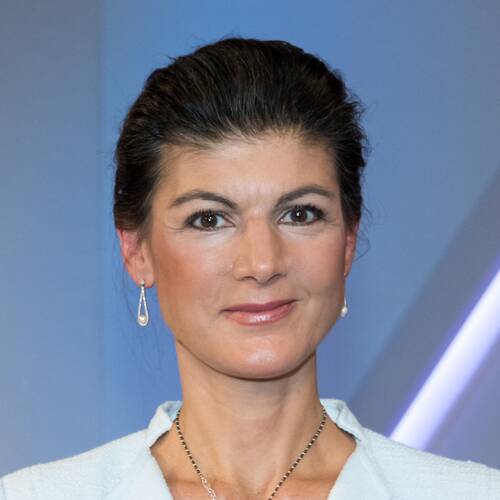
- Occupations
- politicianjournalisteconomistnon-fiction writeropinion journalist
- Biography
-
Sahra Wagenknecht is a German politician, economist, author, and publicist. She has been a member of the Bundestag since 2009, where she represented The Left until 2023. From 2015 to 2019, she served as that party's parliamentary co-chair. With a small team of allies, Wagenknecht left the party on 23 October 2023 to found her own party in 2024, Bündnis Sahra Wagenknecht, to contest elections onwards.
-
Erwin Schrödinger

- Occupations
- physicisttheoretical physicistprofessornon-fiction writermathematician
- Biography
-
Erwin Rudolf Josef Alexander Schrödinger, sometimes written as Schroedinger or Schrodinger, was an Austrian-Irish theoretical physicist who developed fundamental results in quantum theory. In particular, he is recognized for postulating the Schrödinger equation, an equation that provides a way to calculate the wave function of a system and how it changes dynamically in time. Schrödinger coined the term "quantum entanglement", and was the earliest to discuss it, doing so in 1932. He also anticipated the many-worlds interpretation of quantum mechanics.
-
Max Planck

- Occupations
- university teachertheoretical physicistphysicistphilosopher
- Biography
-
Max Karl Ernst Ludwig Planck was a German theoretical physicist whose discovery of energy quanta won him the Nobel Prize in Physics in 1918.
-
Ivan Turgenev

- Occupations
- translatornovelistpoetshort story writerwriter
- Biography
-
Ivan Sergeyevich Turgenev was a Russian novelist, short story writer, poet, playwright, translator and popularizer of Russian literature in the West.
-
Felix Mendelssohn
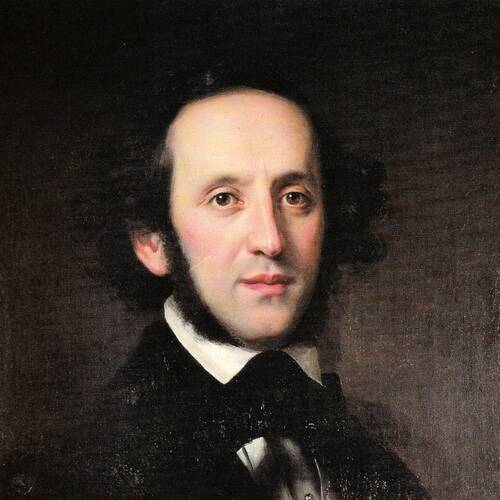
- Occupations
- paintermusicologistmusic educatorcomposeruniversity teacher
- Biography
-
Jakob Ludwig Felix Mendelssohn Bartholdy, widely known as Felix Mendelssohn, was a German composer, pianist, organist and conductor of the early Romantic period. Mendelssohn's compositions include symphonies, concertos, piano music, organ music and chamber music. His best-known works include the overture and incidental music for A Midsummer Night's Dream (which includes his "Wedding March"), the Italian and Scottish Symphonies, the oratorios St. Paul and Elijah, the Hebrides Overture, the mature Violin Concerto, the String Octet, and the melody used in the Christmas carol "Hark! The Herald Angels Sing". Mendelssohn's Songs Without Words are his most famous solo piano compositions.
-
W. E. B. Du Bois

- Occupations
- sociologistteacherwriterjournalistart historian
- Biography
-
William Edward Burghardt Du Bois was an American sociologist, socialist, historian, and Pan-Africanist civil rights activist.
-
Dietrich Bonhoeffer

- Enrolled in the Humboldt University of Berlin
- In 1927 graduated with doctorate in theology
- Occupations
- resistance fighterpoettheologianphilosopherparson
- Biography
-
Dietrich Bonhoeffer was a German Lutheran pastor, neo-orthodox theologian and anti-Nazi dissident who was a key founding member of the Confessing Church. His writings on Christianity's role in the secular world have become widely influential; his 1937 book The Cost of Discipleship is described as a modern classic. Apart from his theological writings, Bonhoeffer was known for his staunch resistance to the Nazi dictatorship, including vocal opposition to Adolf Hitler's euthanasia program and genocidal persecution of Jews. He was arrested in April 1943 by the Gestapo and imprisoned at Tegel Prison for 1½ years. Later, he was transferred to Flossenbürg concentration camp.
-
Heinrich Heine

- Occupations
- essayistpoet lawyerwriterpublicistjournalist
- Biography
-
Christian Johann Heinrich Heine was a German poet, writer and literary critic. He is best known outside Germany for his early lyric poetry, which was set to music in the form of Lieder (art songs) by composers such as Robert Schumann and Franz Schubert.
-
Walter Benjamin

- Occupations
- literary historianliterary criticphilosopherwritertranslator
- Biography
-
Walter Bendix Schönflies Benjamin was a German-Jewish philosopher, cultural critic, media theorist, and essayist. An eclectic thinker who combined elements of German idealism, Romanticism, Western Marxism, Jewish mysticism, and neo-Kantianism, Benjamin made influential contributions to aesthetic theory, literary criticism, and historical materialism. He was associated with the Frankfurt School and also maintained formative friendships with thinkers such as playwright Bertolt Brecht and Kabbalah scholar Gershom Scholem. He was related to German political theorist and philosopher Hannah Arendt through her first marriage to Benjamin's cousin Günther Anders, though the friendship between Arendt and Benjamin outlasted her marriage to Anders. Both Arendt and Anders were students of Martin Heidegger, whom Benjamin considered a nemesis.
-
Fritz Haber
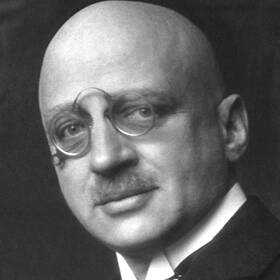
- Enrolled in the Humboldt University of Berlin
- Studied in 1886-1891
- Occupations
- engineerchemistacademicuniversity teacherphysicist
- Biography
-
Fritz Haber was a German chemist who received the Nobel Prize in Chemistry in 1918 for his invention of the Haber process, a method used in industry to synthesize ammonia from nitrogen gas and hydrogen gas. This invention is important for the large-scale synthesis of fertilizers and explosives. It is estimated that a third of annual global food production uses ammonia from the Haber–Bosch process, and that this food supports nearly half the world's population. For this work, Haber has been called one of the most important scientists and industrial chemists in human history. Haber also, along with Max Born, proposed the Born–Haber cycle as a method for evaluating the lattice energy of an ionic solid.
-
Mikhail Bakunin

- Occupations
- anarchistrevolutionarypoliticianwriterphilosopher
- Biography
-
Mikhail Alexandrovich Bakunin was a Russian revolutionary anarchist. He is among the most influential figures of anarchism and a major figure in the revolutionary socialist, social anarchist, and collectivist anarchist traditions. Bakunin's prestige as a revolutionary also made him one of the most famous ideologues in Europe, gaining substantial influence among radicals throughout Russia and Europe.
-
Michelle Bachelet

- Occupations
- pediatriciansurgeonepidemiologistpolitician
- Biography
-
Verónica Michelle Bachelet Jeria is a Chilean politician who served as President of Chile from 2006 to 2010 and again from 2014 to 2018, becoming the first woman to hold the presidency. She was re-elected in December 2013 with over 62% of the vote, having previously received 54% in 2006, making her the first President of Chile to be re-elected since 1932. After her second term, she served as United Nations High Commissioner for Human Rights from 2018 to 2022. Earlier in her career, she was appointed as the first executive director of the United Nations Entity for Gender Equality and the Empowerment of Women.
-
Wilhelm Wundt

- Occupations
- physiologistuniversity teacherwriterphilosopherpsychologist
- Biography
-
Wilhelm Maximilian Wundt was a German physiologist, philosopher, and professor, one of the fathers of modern psychology. Wundt, who distinguished psychology as a science from philosophy and biology, was the first person to call himself a psychologist.
-
Ricarda Lang

- Enrolled in the Humboldt University of Berlin
- 2014-2019 studied jurisprudence
- Occupations
- white-collar workerpolitician
- Biography
-
Ricarda Lang is a German politician who served as co-leader of the Alliance 90/The Greens from 2022 to 2024, alongside Omid Nouripour. She has been a member of the Bundestag since 2021. Previously, she was co-deputy leader of the party and spokeswoman for women's policy from 2019 to 2022, and co-leader of the Green Youth from 2017 to 2019.
-
Edmund Husserl

- Enrolled in the Humboldt University of Berlin
- 1878-1881 studied mathematics
- Occupations
- phenomenologistmathematicianphilosopheruniversity teacher
- Biography
-
Edmund Gustav Albrecht Husserl was an Austrian-German philosopher and mathematician who established the school of phenomenology.
-
Alfred Wegener
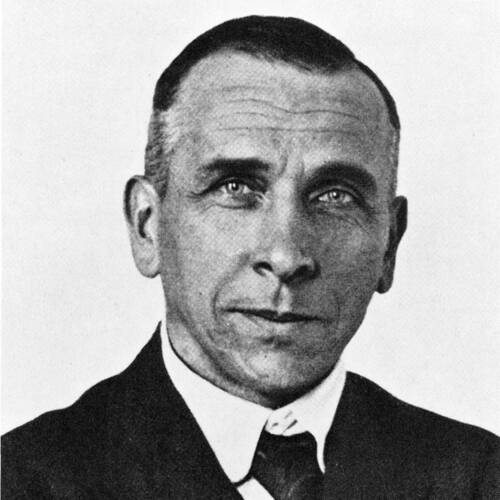
- Occupations
- astronomerclimatologistexploreruniversity teachermeteorologist
- Biography
-
Alfred Lothar Wegener was a German climatologist, geologist, geophysicist, meteorologist, and polar researcher.
-
Emil Cioran
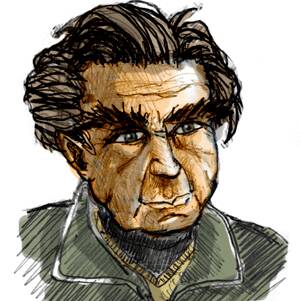
- Enrolled in the Humboldt University of Berlin
- Studied in 1933-1935
- Occupations
- translatordiaristwriterphilosopheraphorist
- Biography
-
Emil Mihai Cioran was a Romanian philosopher, aphorist and essayist, who published works in both Romanian and French. His work has been noted for its pervasive philosophical pessimism, style, and aphorisms. His works frequently engaged with issues of suffering, decay, and nihilism. In 1937, Cioran moved to the Latin Quarter of Paris, which became his permanent residence, wherein he lived in seclusion with his partner, Simone Boué, until his death in 1995.
-
Dieter Hallervorden
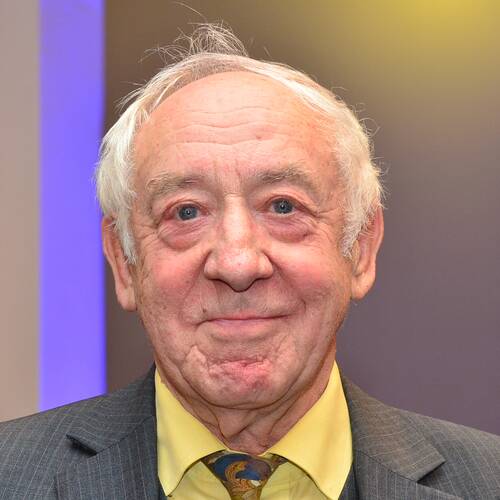
- Occupations
- screenwriterfilm directortelevision presentersingervoice actor
- Biography
-
Dieter "Didi" Hallervorden is a German comedian, actor, singer, and cabaret artist. He achieved great popularity in German-speaking countries in the mid-1970s with the slapstick series Nonstop Nonsens and his character Didi.
-
Palina Rojinski

- Occupations
- actorfilm actortelevision presentermodeldisc jockey
- Biography
-
Palina Rojinski is a Russian-German television presenter and actress based in Germany.
-
Herbert Marcuse

- Occupations
- sociologistpolitical theoristuniversity teacherphilosopherpolitical scientist
- Biography
-
Herbert Marcuse was a German–American philosopher, social critic, and political theorist, associated with the Frankfurt School of critical theory. Born in Berlin, Marcuse studied at Berlin's Friedrich Wilhelm University and then at Freiburg, where he received his Ph.D. He was a prominent figure in the Frankfurt-based Institute for Social Research, which later became known as the Frankfurt School. In his written works, he criticized capitalism, modern technology, Soviet Communism, and popular culture, arguing that they represent new forms of social control.
-
Rudolf Virchow

- Occupations
- physicianpoliticianpaleoanthropologistpathologistprehistorian
- Biography
-
Rudolf Ludwig Carl Virchow was a German physician, anthropologist, pathologist, prehistorian, biologist, writer, editor, and politician. He is known as "the father of modern pathology" and as the founder of social medicine, and to his colleagues, the "Pope of medicine".
-
Heinrich Hertz
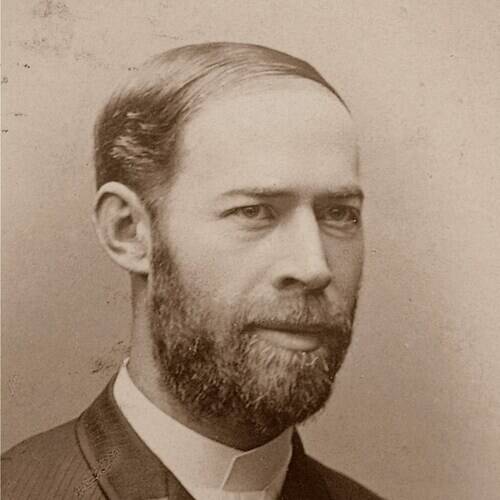
- Enrolled in the Humboldt University of Berlin
- Studied in 1878
- Occupations
- university teacherinventorphysicistphilosopher
- Biography
-
Heinrich Rudolf Hertz was a German physicist who first conclusively proved the existence of the electromagnetic waves predicted by James Clerk Maxwell's equations of electromagnetism. The SI unit of frequency, the hertz (Hz), is named after him.
-
Joachim Sauer
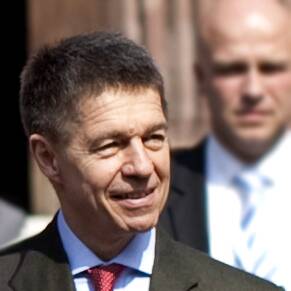
- Occupations
- university teacherchemist
- Biography
-
Joachim Sauer ForMemRS is a German quantum chemist and professor emeritus of physical and theoretical chemistry at the Humboldt University of Berlin. He is the husband of the former chancellor of Germany, Angela Merkel. He is one of the seven members of the board of trustees of the Friede Springer Foundation, together with former German president Horst Köhler and others.
-
Hjalmar Schacht
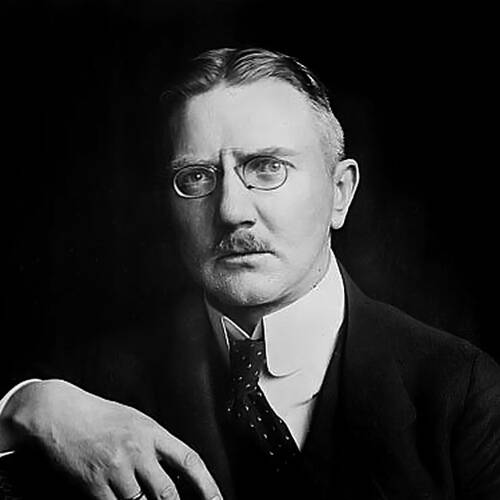
- Occupations
- politicianbankereconomist
- Biography
-
Hjalmar Schacht was a German economist, banker, politician, and co-founder of the German Democratic Party. He served as the Currency Commissioner and President of the Reichsbank under the Weimar Republic. He was a fierce critic of his country's post-World War I reparations obligations. He was also central in helping create the group of German industrialists and landowners that pushed Hindenburg to appoint the first NSDAP-led government.
-
Ernst Haeckel
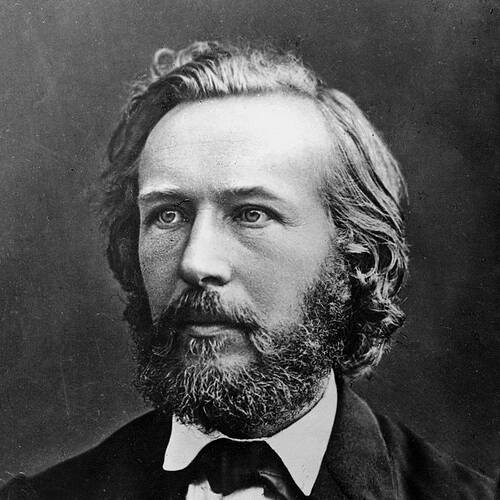
- Occupations
- naturalistphilosopherzoologistornithologistphotographer
- Biography
-
Ernst Heinrich Philipp August Haeckel was a German zoologist, naturalist, eugenicist, philosopher, physician, professor, marine biologist and artist. He discovered, described and named thousands of new species, mapped a genealogical tree relating all life forms and coined many terms in biology, including ecology, phylum, phylogeny, and Protista. Haeckel promoted and popularised Charles Darwin's work in Germany and developed the debunked but influential recapitulation theory ("ontogeny recapitulates phylogeny"), falsely claiming that an individual organism's biological development, or ontogeny, parallels and summarizes its species' evolutionary development, or phylogeny, using incorrectly redrawn images of human embryonic development, images which heavily influenced the public to believe in the theory of evolution. Whether he intentionally falsified the images or drew them poorly by accident is a matter of debate.
-
Oswald Spengler

- Occupations
- sociologistwriterhistorianphilosophermathematician
- Biography
-
Oswald Arnold Gottfried Spengler was a German polymath whose areas of interest included history, philosophy, mathematics, science, and art, as well as their relation to his organic theory of history. He is best known for his two-volume work The Decline of the West (Der Untergang des Abendlandes), published in 1918 and 1922, covering human history. Spengler's model of history postulates that human cultures and civilizations are akin to biological entities, each with a limited, predictable, and deterministic lifespan.
-
Georg Cantor

- Occupations
- philosopheruniversity teachermathematician
- Biography
-
Georg Ferdinand Ludwig Philipp Cantor was a mathematician who played a pivotal role in the creation of set theory, which has become a fundamental theory in mathematics. Cantor established the importance of one-to-one correspondence between the members of two sets, defined infinite and well-ordered sets, and proved that the real numbers are more numerous than the natural numbers. Cantor's method of proof of this theorem implies the existence of an infinity of infinities. He defined the cardinal and ordinal numbers and their arithmetic. Cantor's work is of great philosophical interest, a fact he was well aware of.
-
Gustav Stresemann
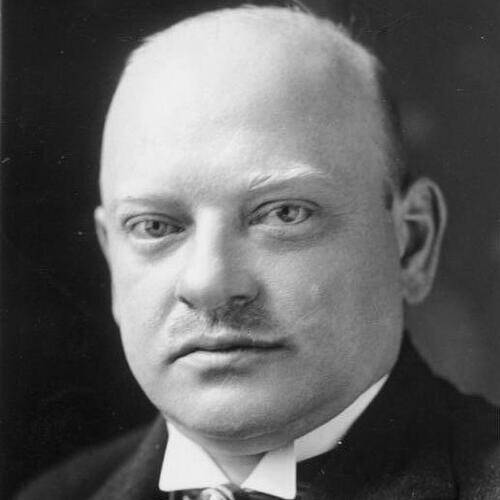
- Occupations
- diplomatpolitician
- Biography
-
Gustav Ernst Stresemann was a German statesman during the Weimar Republic who served as chancellor of Germany from August to November 1923 and as foreign minister from 1923 to 1929. His most notable achievement was the reconciliation between Germany and France, for which he and French Prime Minister Aristide Briand received the Nobel Peace Prize in 1926. During a period of political instability and fragile, short-lived governments, Stresemann was seen at his death as "the person who maintained the precarious balance of the political system."
-
Ludwig Feuerbach

- Enrolled in the Humboldt University of Berlin
- 1824-1826 studied philosophy
- Occupations
- philosopherbeekeeperwritercritic of religionsanthropologist
- Biography
-
Ludwig Andreas von Feuerbach was a German anthropologist and philosopher, best known for his book The Essence of Christianity, which provided a critique of Christianity that strongly influenced generations of later thinkers, including Charles Darwin, Karl Marx, Sigmund Freud, Friedrich Engels, Mikhail Bakunin, Richard Wagner, Frederick Douglass, and Friedrich Nietzsche.
-
Max Stirner
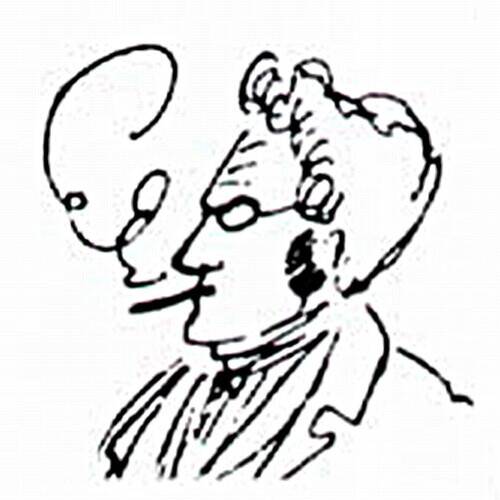
- Enrolled in the Humboldt University of Berlin
- 1826-1828 studied philosophy of religion, logic, and geography
- In 1834 studied religion, philosophy, German, and ancient language
- Occupations
- translatorphilosopherwritergymnasial teachereducator
- Biography
-
Johann Kaspar Schmidt, known professionally as Max Stirner, was a German post-Hegelian philosopher, dealing mainly with the Hegelian notion of social alienation and self-consciousness. Stirner is often seen as one of the forerunners of nihilism, existentialism, psychoanalytic theory, postmodernism and individualist anarchism.
-
George Santayana

- Occupations
- philosopherpoetwriteruniversity teachernovelist
- Biography
-
George Santayana was a Spanish-American philosopher, essayist, poet, and novelist. Born in Spain, Santayana was raised and educated in the United States from the age of eight and identified as an American, yet always retained a valid Spanish passport. At the age of 48, he left his academic position at Harvard University and permanently returned to Europe; his last will was to be buried in the Spanish Pantheon in the Campo di Verano, Rome.
-
Bernhard Riemann
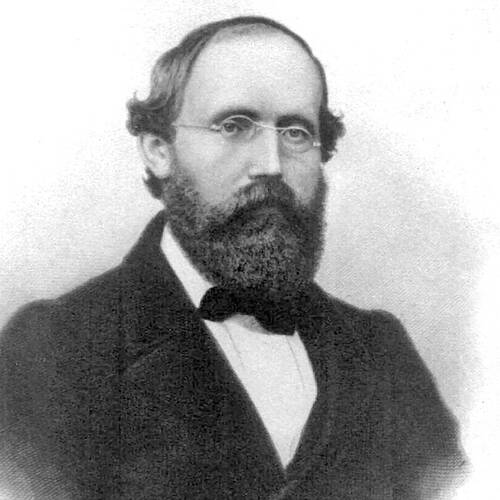
- Enrolled in the Humboldt University of Berlin
- Studied in 1847-1849
- Occupations
- university teachermathematicianphysicistprofessor
- Biography
-
Georg Friedrich Bernhard Riemann was a German mathematician who made profound contributions to analysis, number theory, and differential geometry. In the field of real analysis, he is mostly known for the first rigorous formulation of the integral, the Riemann integral, and his work on Fourier series. His contributions to complex analysis include most notably the introduction of Riemann surfaces, breaking new ground in a natural, geometric treatment of complex analysis. His 1859 paper on the prime-counting function, containing the original statement of the Riemann hypothesis, is regarded as a foundational paper of analytic number theory. Through his pioneering contributions to differential geometry, Riemann laid the foundations of the mathematics of general relativity. He is considered by many to be one of the greatest mathematicians of all time.
-
Gregor Gysi
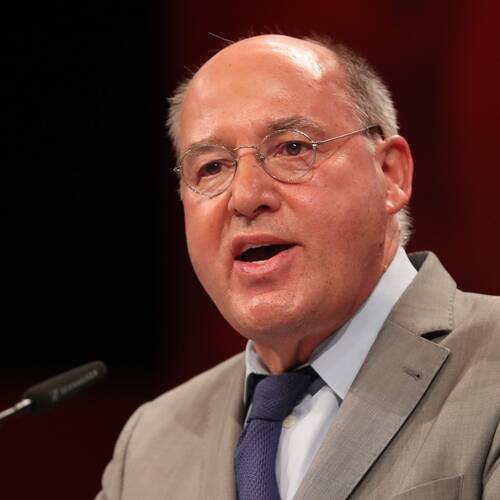
- Occupations
- presenterpoliticianwriterlawyer
- Biography
-
Gregor Florian Gysi is a German attorney, former president of the Party of the European Left and a prominent politician of The Left (Die Linke) political party.
-
Robert Schuman
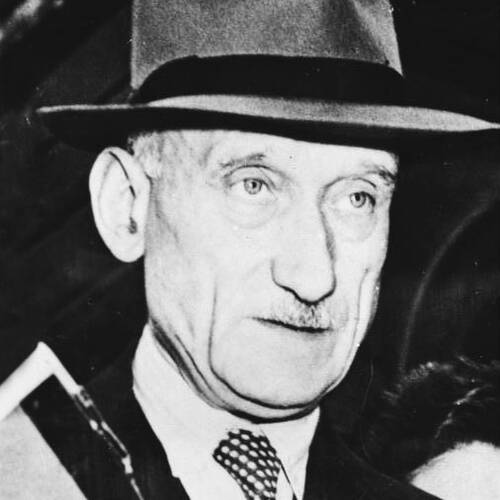
- Occupations
- politiciandiplomatlawyer
- Biography
-
Jean-Baptiste Nicolas Robert Schuman was a Luxembourg-born French statesman. Schuman was a Christian democratic (Popular Republican Movement) political thinker and activist. Twice Prime Minister of France, a reformist Minister of Finance and a Foreign Minister, he was instrumental in building postwar European and trans-Atlantic institutions and was one of the founders of the European Communities, the Council of Europe and NATO. The 1964–1965 academic year at the College of Europe was named in his honour. In 2021, Schuman was declared venerable by Pope Francis in recognition of his acting on Christian principles.
-
Karl Liebknecht
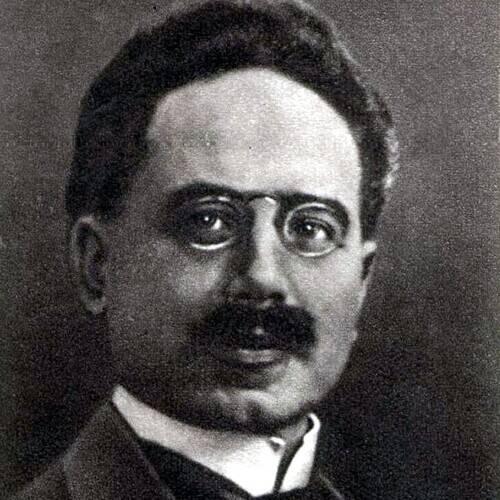
- Occupations
- revolutionarypoliticianlawyereditor
- Biography
-
Karl Paul August Friedrich Liebknecht was a German revolutionary socialist and anti-militarist. A member of the Social Democratic Party of Germany (SPD) beginning in 1900, he was one of its deputies in the Reichstag from 1912 to 1916, where he represented the left-revolutionary wing of the party. In 1916 he was expelled from the SPD's parliamentary group for his opposition to the Burgfriedenspolitik, the political truce between all parties in the Reichstag while the war lasted. He twice spent time in prison, first for writing an anti-militarism pamphlet in 1907 and then for his role in a 1916 antiwar demonstration. He was released from the second under a general amnesty three weeks before the end of the First World War.
-
Emil von Behring
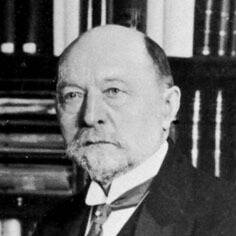
- Occupations
- physiologistphysicianimmunologistnon-fiction writeruniversity teacher
- Biography
-
Emil von Behring, was a German physiologist who received the 1901 Nobel Prize in Physiology or Medicine, the first one awarded in that field, for his discovery of a diphtheria antitoxin. He was widely known as a "saviour of children", as diphtheria used to be a major cause of child death. His work with the disease, as well as tetanus, has come to bring him most of his fame and acknowledgment. He was honoured with Prussian nobility in 1901, henceforth being known by the surname "von Behring".
-
Otto Hahn
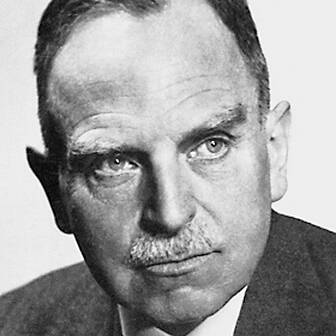
- Occupations
- chemistuniversity teacherautobiographernon-fiction writernuclear physicist
- Biography
-
Otto Hahn was a German chemist who was a pioneer in the field of radiochemistry. He is referred to as the father of nuclear chemistry and discoverer of nuclear fission, the science behind nuclear reactors and nuclear weapons. Hahn and Lise Meitner discovered isotopes of the radioactive elements radium, thorium, protactinium and uranium. He also discovered the phenomena of atomic recoil and nuclear isomerism, and pioneered rubidium–strontium dating. In 1938, Hahn, Meitner and Fritz Strassmann discovered nuclear fission, for which Hahn alone was awarded the 1944 Nobel Prize in Chemistry.
-
Menachem Mendel Schneerson
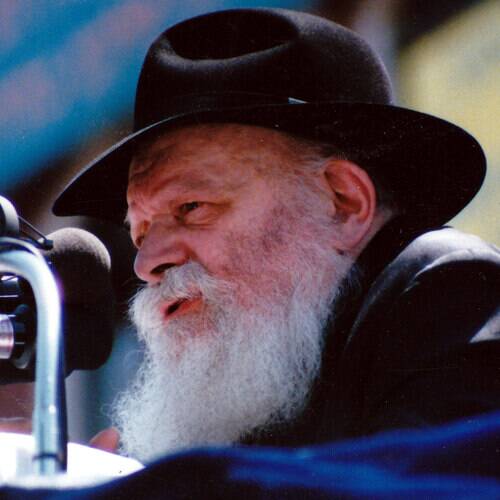
- Occupations
- Rebbe
- Biography
-
Menachem Mendel Schneerson, known to adherents of the Chabad-Lubavitch movement as the Lubavitcher Rebbe or simply the Rebbe, was a Russian-American Orthodox rabbi and the most recent Rebbe of the Lubavitch Hasidic dynasty. He is considered one of the most influential Jewish leaders of the 20th century.
-
Kurt Zadek Lewin
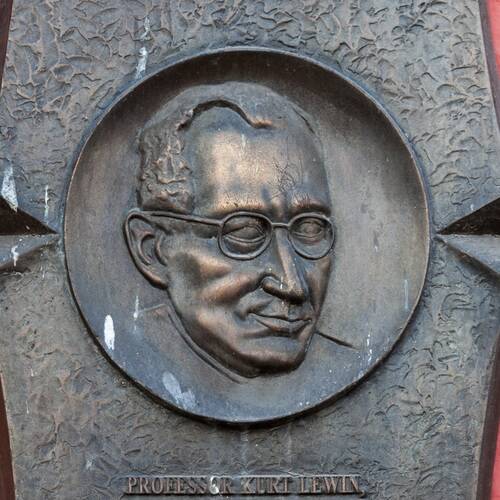
- Occupations
- psychologistuniversity teachereconomist
- Biography
-
Kurt Lewin was a German-American psychologist, known as one of the modern pioneers of social, organizational, and applied psychology in the United States. During his professional career, Lewin's academic research and writings focuses on applied research, action research, and group communication.
-
Louis Ferdinand, Prince of Prussia
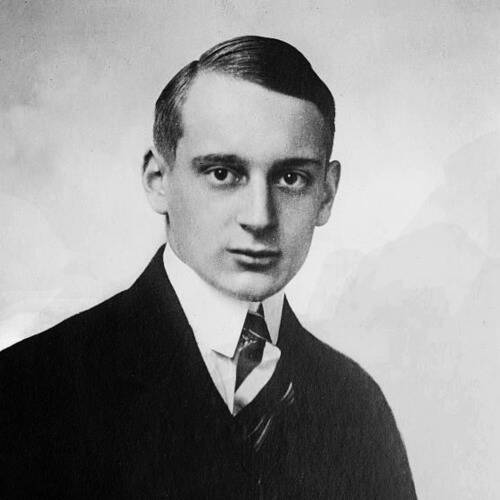
- Occupations
- composerpoliticianwriter
- Biography
-
Louis Ferdinand, Prince of Prussia was a member of the princely House of Hohenzollern, which occupied the Prussian and German thrones until the abolition of those monarchies in 1918. He was also noteworthy as a businessman and patron of the arts.
-
Martin Buber

- Occupations
- philosopheruniversity teachertheologianliterary editoreducator
- Biography
-
Martin Buber was an Austrian-Israeli philosopher best known for his philosophy of dialogue, a form of existentialism centered on the distinction between the I–Thou relationship and the I–It relationship. Born in Vienna, Buber came from a family of observant Jews, but broke with Jewish custom to pursue secular studies in philosophy. He produced writings about Zionism and worked with various bodies within the Zionist movement extensively over a nearly 50-year period spanning his time in Europe and the Near East. In 1923, Buber wrote his famous essay on existence, Ich und Du (later translated into English as I and Thou), and in 1925 he began translating the Hebrew Bible into the German language.
-
Georg Simmel
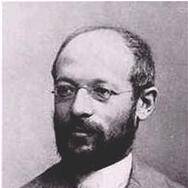
- Occupations
- philosophersociologistuniversity teacher
- Biography
-
Georg Simmel was a German sociologist, philosopher, and critic.
-
Franziska Giffey
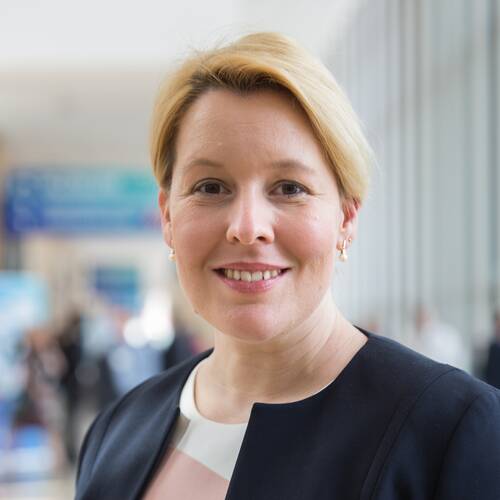
- Occupations
- politiciannon-fiction writersocial scientist
- Biography
-
Franziska Giffey is a German politician of the Social Democratic Party (SPD) who is serving as Berlin State Senator for Economy, Energy and Enterprise since 2023. She served as Governing Mayor of Berlin from December 2021 to April 2023. As of 2024, she is the youngest living (sitting or former) head of a german state government. She previously served as Minister for Family Affairs, Senior Citizens, Women and Youth in the government of Chancellor Angela Merkel from 2018 until 2021. From 2015 to 2018, she was the mayor of the borough of Neukölln in Berlin.
-
Jannik Schümann
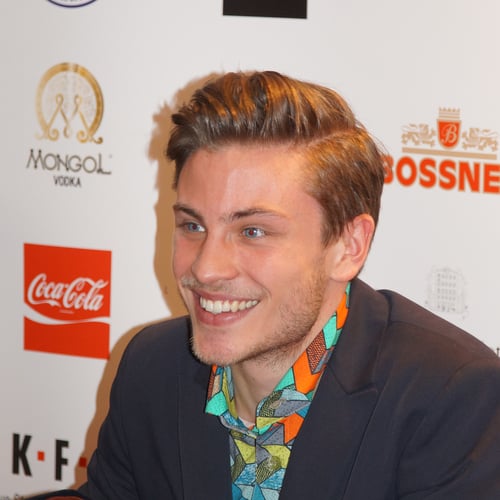
- Enrolled in the Humboldt University of Berlin
- Studied English studies and media studies
- Occupations
- stage actoractortelevision actorfilm actorchild actor
- Biography
-
Jannik Schümann is a German actor. He received three Jupiter Awards for Best Actor, for his role of Danny in Close to the Horizon (2020), 9 Days Awake (2021), and the role of Franz Joseph I in Sisi (2022). He is also known for his role in The Aftermath (2019), Center of My World (2016), Die Diplomatin (2016–2023), Monster Hunter (2020), Tribes of Europa (2021), or Charité at War (2019).
-
Felix Jaehn

- Occupations
- record producerremixermusicianmanufacturerdisc jockey
- Biography
-
Fee Jähn, known professionally as Felix Jaehn, is a German DJ and record producer. Jaehn achieved international success with their remix of OMI's song "Cheerleader", which topped the charts in multiple countries and reached number-one on the Billboard Hot 100 in 2015.
-
Christiane Paul
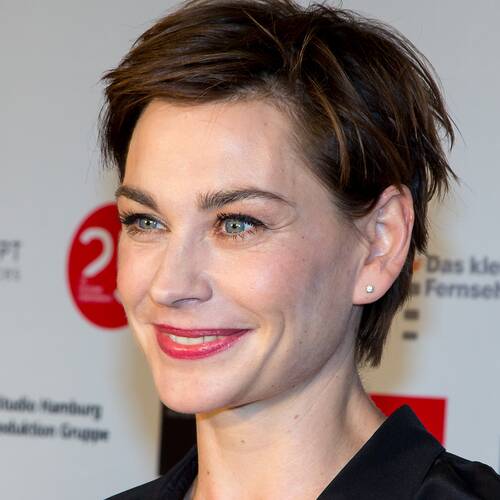
- Occupations
- film actormodelstage actoractor
- Biography
-
Christiane Paul is a German film, television and stage actress.
-
Leó Szilárd
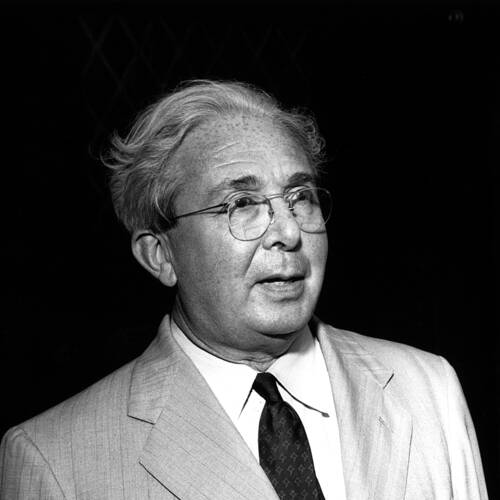
- Enrolled in the Humboldt University of Berlin
- In 1922 graduated with Doctor of Philosophy in physics
- Occupations
- nuclear physicistscientistscience fiction writerphysicistuniversity teacher
- Biography
-
Leo Szilard was a Hungarian-born physicist, biologist and inventor who made numerous important discoveries in nuclear physics and the biological sciences. He conceived the nuclear chain reaction in 1933, and patented the idea in 1936. In late 1939 he wrote the letter for Albert Einstein's signature that resulted in the Manhattan Project that built the atomic bomb, and then in 1944 wrote the Szilard petition asking President Truman to demonstrate the bomb without dropping it on civilians. According to György Marx, he was one of the Hungarian scientists known as The Martians.
-
Alois Alzheimer
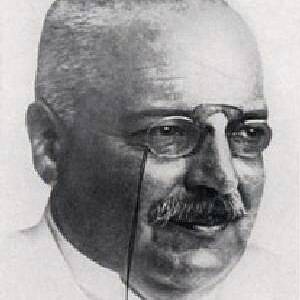
- Occupations
- neurologistphysicianneuropathologistuniversity teacherneuroscientist
- Biography
-
Alois Alzheimer was a German psychiatrist, neuropathologist and colleague of Emil Kraepelin. He is credited with identifying the first published case of "presenile dementia", which Kraepelin later identified as Alzheimer's disease.
-
Theodor Heuss
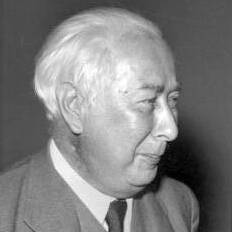
- Occupations
- university teacherpoliticianwriterjournalist
- Biography
-
Theodor Heuss was a German liberal politician who served as the first president of West Germany from 1949 to 1959. His civil demeanour and his cordial nature – something of a contrast to German nationalist traditions and the stern character of chancellor Konrad Adenauer – largely contributed to the stabilization of democracy in West Germany during the Wirtschaftswunder years. Before beginning his career as a politician, Heuss had been a political journalist. To this day, Heuss is remembered as a major representative of social liberalism in Germany.
-
Nikolai Pirogov
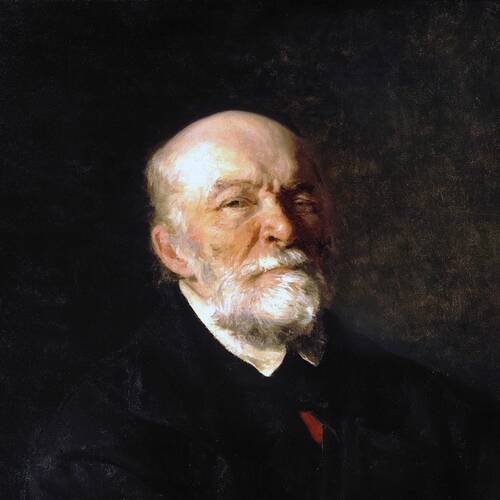
- Enrolled in the Humboldt University of Berlin
- Studied in 1833
- Occupations
- anatomistsurgeonphysicianscientist
- Biography
-
Nikolay Ivanovich Pirogov was a Russian scientist, medical doctor, pedagogue, public figure, and corresponding member of the Russian Academy of Sciences (1847), one of the most widely recognized Russian physicians. Considered to be the founder of field surgery, he was the first surgeon to use anaesthesia in a field operation (1847) and one of the first surgeons in Europe to use ether as an anaesthetic. He is credited with the invention of various kinds of surgical operations and developing his own technique of using plaster casts to treat fractured bones.
-
Georg Lukács
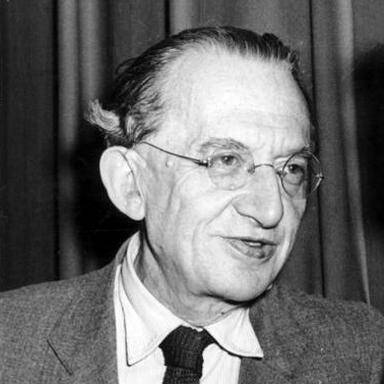
- Enrolled in the Humboldt University of Berlin
- Studied in 1907
- Occupations
- philosopheruniversity teacherpoliticianwriterart historian
- Biography
-
György Lukács was a Hungarian Marxist philosopher, literary historian, literary critic, and aesthetician. He was one of the founders of Western Marxism, an interpretive tradition that departed from the Soviet Marxist ideological orthodoxy. He developed the theory of reification, and contributed to Marxist theory with developments of Karl Marx's theory of class consciousness. He was also a philosopher of Leninism. He ideologically developed and organised Lenin's pragmatic revolutionary practices into the formal philosophy of vanguard-party revolution.
-
George F. Kennan

- Occupations
- political scientistpoliticianwriterhistorianuniversity teacher
- Biography
-
George Frost Kennan was an American diplomat and historian. He was best known as an advocate of a policy of containment of Soviet expansion during the Cold War. He lectured widely and wrote scholarly histories of the relations between the USSR and the United States. He was also one of the group of foreign policy elders known as "The Wise Men".
-
Kurt Tucholsky
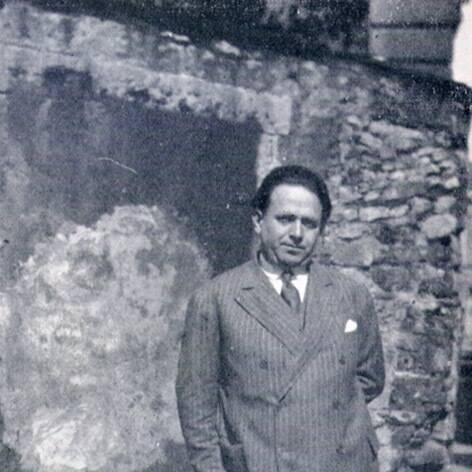
- Occupations
- playwrightsatiristjournalistpoet lawyerwriter
- Biography
-
Kurt Tucholsky was a German journalist, satirist, and writer. He also wrote under the pseudonyms Kaspar Hauser (after the historical figure), Peter Panter, Theobald Tiger and Ignaz Wrobel.
-
Walther Rathenau
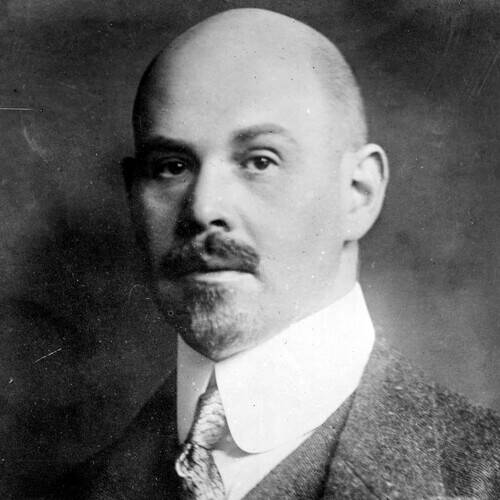
- Occupations
- engineerpoliticianscience fiction writerwriterentrepreneur
- Biography
-
Walther Rathenau was a German industrialist, writer and politician who served as foreign minister of Germany from February to June 1922.
-
Theodor Schwann
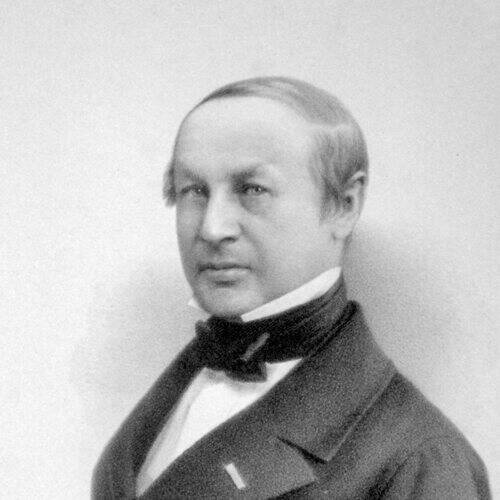
- Occupations
- physiologistphysicianbotanistuniversity teacherbiologist
- Biography
-
Theodor Schwann was a German physician and physiologist. His most significant contribution to biology is considered to be the extension of cell theory to animals. Other contributions include the discovery of Schwann cells in the peripheral nervous system, the discovery and study of pepsin, the discovery of the organic nature of yeast, and the invention of the term "metabolism".
-
Robert Musil

- Enrolled in the Humboldt University of Berlin
- 1903-1908 studied philosophy and psychology
- Occupations
- librarianscreenwriterplaywrightwriterprose writer
- Biography
-
Robert Musil was an Austrian philosophical writer. His unfinished novel, The Man Without Qualities (German: Der Mann ohne Eigenschaften), is generally considered to be one of the most important and influential modernist novels.
-
Max Scheler
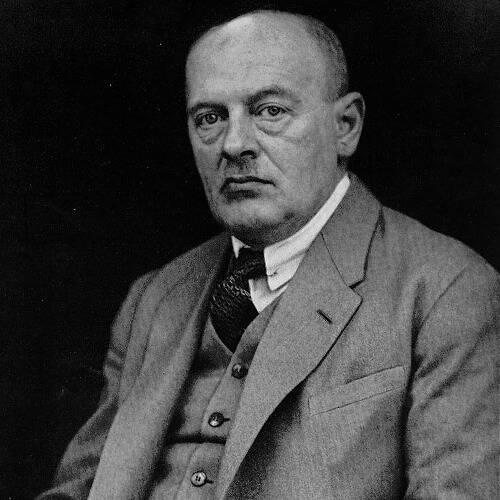
- Occupations
- sociologistuniversity teacherphilosopheraxiologyanthropologist
- Biography
-
Max Ferdinand Scheler was a German philosopher known for his work in phenomenology, ethics, and philosophical anthropology. Considered in his lifetime one of the most prominent German philosophers, Scheler developed the philosophical method of Edmund Husserl, the founder of phenomenology.
-
Wolf Biermann
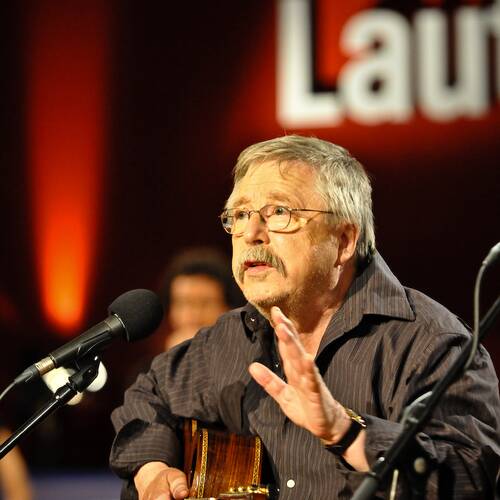
- Occupations
- Liedermachercomposerpoetdissidentwriter
- Biography
-
Karl Wolf Biermann is a German singer-songwriter, poet, and former East German dissident. He is perhaps best known for the 1968 song "Ermutigung" and his expatriation from East Germany in 1976.
-
Sofia Kovalevskaya
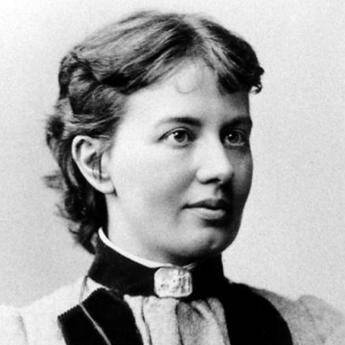
- Occupations
- physicistwritercommunarduniversity teachernovelist
- Biography
-
Sofya Vasilyevna Kovalevskaya was a Russian mathematician who made noteworthy contributions to analysis, partial differential equations and mechanics. She was a pioneer for women in mathematics around the world – the first woman to earn a doctorate (in the modern sense) in mathematics, the first woman appointed to a full professorship in northern Europe and one of the first women to work for a scientific journal as an editor. According to historian of science Ann Hibner Koblitz, Kovalevskaya was "the greatest known woman scientist before the twentieth century".
-
Karen Horney
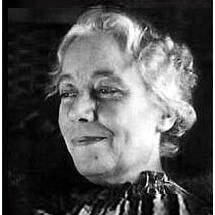
- Occupations
- psychoanalystwriterpsychiatristpsychotherapist
- Biography
-
Karen Horney was a German psychoanalyst who practiced in the United States during her later career. Her theories questioned some traditional Freudian views. This was particularly true of her theories of sexuality and of the instinct orientation of psychoanalysis. She is credited with founding feminist psychology in response to Freud's theory of penis envy. She disagreed with Freud about inherent differences in the psychology of men and women, and like Adler, she traced such differences to society and culture rather than biology.
-
Hendrik Frensch Verwoerd
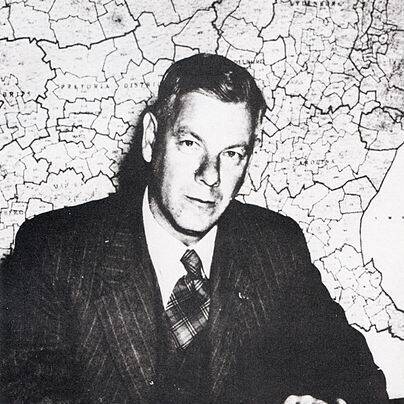
- Occupations
- faculty memberpoliticianuniversity teacher
- Biography
-
Hendrik Frensch Verwoerd, also known as H. F. Verwoerd, was a Dutch-born South African politician, scholar in applied psychology, philosophy, and sociology, and newspaper editor who was Prime Minister of South Africa from 1958 until his assassination in 1966.
-
Otto Heinrich Warburg
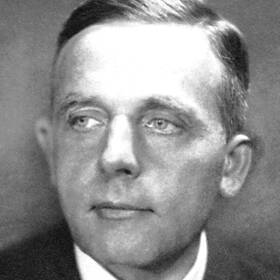
- Occupations
- physiologistbiochemistphysicianuniversity teacherchemist
- Biography
-
Otto Heinrich Warburg was a German physiologist, medical doctor, and Nobel laureate. He served as an officer in the elite Uhlan (cavalry regiment) during the First World War, and was awarded the Iron Cross (1st Class) for bravery. He was the sole recipient of the Nobel Prize in Physiology or Medicine in 1931. In total, he was nominated for the award 47 times over the course of his career.
-
Ram Manohar Lohia
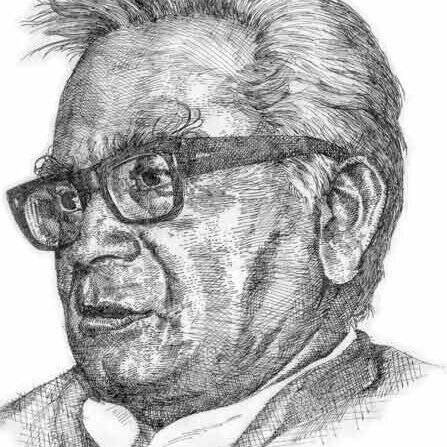
- Occupations
- freedom fighterpoliticianeconomist
- Biography
-
Ram Manohar Lohia was an Indian freedom fighter of the Indian independence movement and a socialist politician. As a nationalist, he worked actively to protest against colonialism, raising awareness of the same. He founded multiple socialist political parties and later won elections to the Lok Sabha.
-
Paul Tillich

- Occupations
- philosopheruniversity teachertheologian
- Biography
-
Paul Johannes Tillich was a German-American Christian existentialist philosopher, religious socialist, and Lutheran theologian who was one of the most influential theologians of the twentieth century. Tillich taught at German universities before immigrating to the United States in 1933, where he taught at Union Theological Seminary, Harvard University, and the University of Chicago.
-
Wilhelm Dilthey
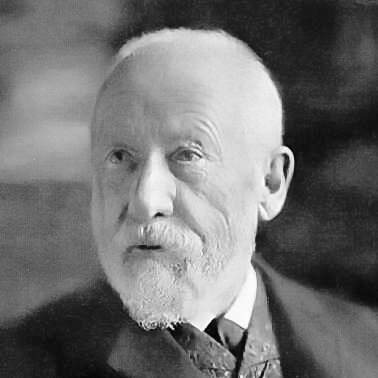
- Occupations
- philosopherteachersociologistpsychologistuniversity teacher
- Biography
-
Wilhelm Dilthey was a German historian, psychologist, sociologist, and hermeneutic philosopher, who held Georg Wilhelm Friedrich Hegel's Chair in Philosophy at the University of Berlin. As a polymathic philosopher, working in a modern research university, Dilthey's research interests revolved around questions of scientific methodology, historical evidence and history's status as a science.
-
Lion Feuchtwanger
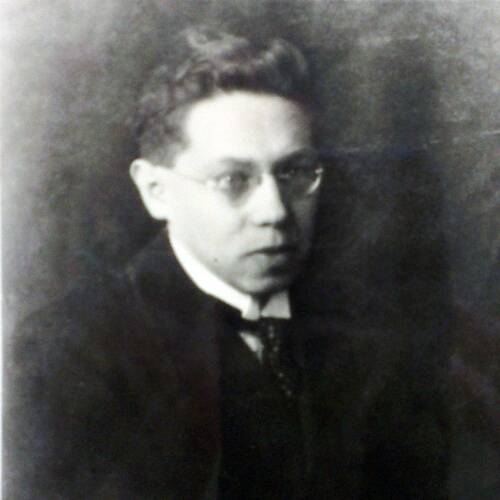
- Occupations
- writertranslatorplaywrightjournalist
- Biography
-
Lion Feuchtwanger was a German Jewish novelist and playwright. A prominent figure in the literary world of Weimar Germany, he influenced contemporaries including playwright Bertolt Brecht.
-
Ferdinand Lassalle
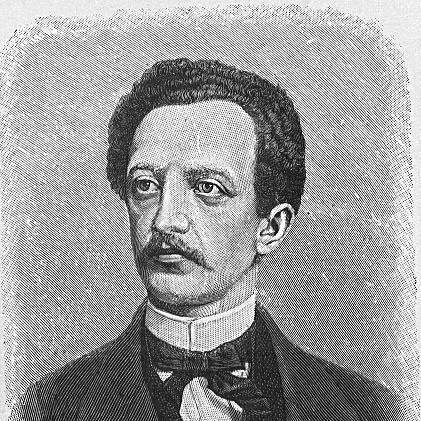
- Occupations
- economistpoliticianlawyerwriterphilosopher
- Biography
-
Ferdinand Lassalle was a German socialist activist and politician who founded the first German workers' party, the General German Workers' Association (ADAV), in 1863. He is best remembered as the initiator of the country's social-democratic movement, which after his death led to the formation of the Social Democratic Party of Germany (SPD) in 1875.
-
Wilhelm Grimm
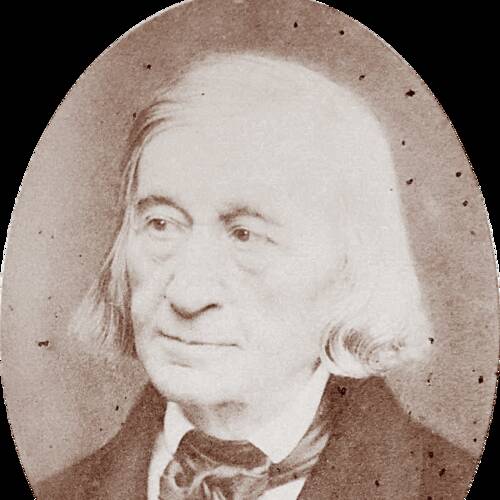
- Occupations
- lexicographerwriterGermanistliterary scholarlinguist
- Biography
-
Wilhelm Carl Grimm was a German author and anthropologist. He was the younger brother of Jacob Grimm, of the literary duo the Brothers Grimm.
-
Mihajlo Pupin
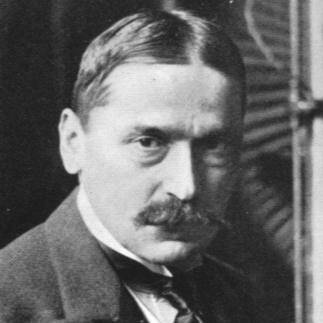
- Occupations
- inventorchemistuniversity teacherphysicistmathematician
- Biography
-
Mihajlo Idvorski Pupin, also known as Michael Pupin, was a Serbian-American electrical engineer, physicist and inventor.
-
Ernst Cassirer
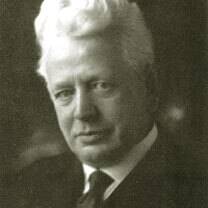
- Occupations
- philosopherart historianuniversity teacher
- Biography
-
Ernst Alfred Cassirer was a German philosopher. Trained within the Neo-Kantian Marburg School, he initially followed his mentor Hermann Cohen in attempting to supply an idealistic philosophy of science.
-
Friedlieb Ferdinand Runge
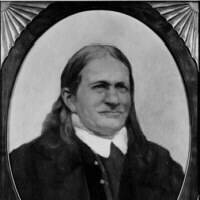
- Occupations
- university teacherchemist
- Biography
-
Friedlieb Ferdinand Runge was a German analytical chemist. Runge identified the mydriatic (pupil dilating) effects of belladonna (deadly nightshade) extract, identified caffeine, and discovered the first coal tar dye (aniline blue).
-
Hermann Minkowski
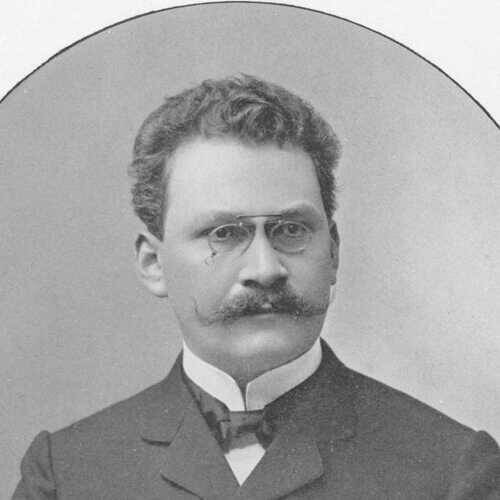
- Occupations
- physicistuniversity teachermathematician
- Biography
-
Hermann Minkowski was a mathematician and professor at the University of Königsberg, the University of Zürich, and the University of Göttingen, described variously as German, Polish, Lithuanian-German, or Russian. He created and developed the geometry of numbers and elements of convex geometry, and used geometrical methods to solve problems in number theory, mathematical physics, and the theory of relativity.
-
Theodor Storm
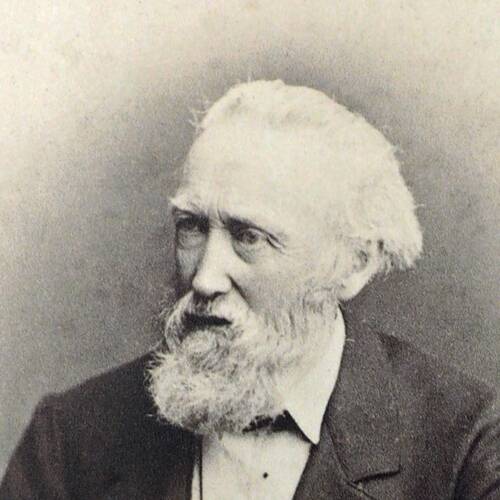
- Enrolled in the Humboldt University of Berlin
- Studied in 1838
- Occupations
- writernovelistpoetlawyer
- Biography
-
Hans Theodor Woldsen Storm, commonly known as Theodor Storm, was a German-Frisian writer and poet. He is considered to be one of the most important figures of German realism.
-
Stéphanie, Hereditary Grand Duchess of Luxembourg
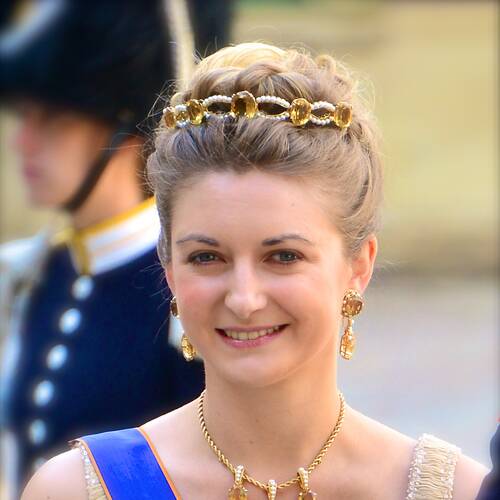
- Occupations
- aristocrat
- Biography
-
Princess Stéphanie, Hereditary Grand Duchess of Luxembourg, is the wife of Hereditary Grand Duke Guillaume, the heir apparent to the throne of Luxembourg. She became engaged to the Hereditary Grand Duke on 26 April 2012 and married him, in a civil ceremony, on 19 October 2012, followed by a religious service the next day. The couple have two sons, Prince Charles and Prince François.
-
Kurt Eisner
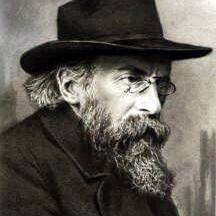
- Occupations
- writerjournalistpolitician
- Biography
-
Kurt Eisner was a German politician, revolutionary, journalist, and theatre critic. As a socialist journalist, he organized the socialist revolution that overthrew the Wittelsbach monarchy in Bavaria in November 1918, which led to him being described as "the symbol of the Bavarian revolution". He is used as an example of charismatic authority by Max Weber. Eisner subsequently proclaimed the People's State of Bavaria but was assassinated by far-right German nationalist Anton Graf von Arco auf Valley in Munich on 21 February 1919.
-
Hans Jonas
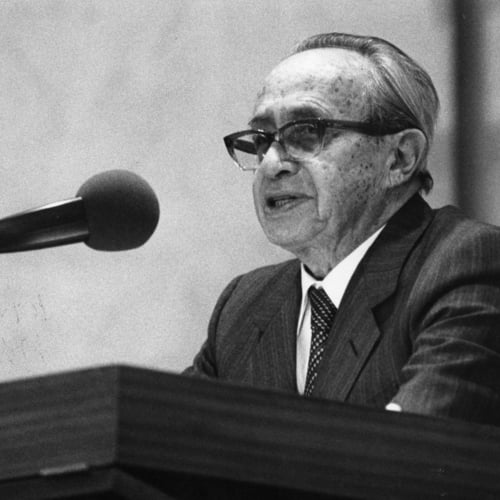
- Occupations
- philosopherenvironmentalistuniversity teacher
- Biography
-
Hans Jonas was a German-born American Jewish philosopher. From 1955 to 1976 he was the Alvin Johnson Professor of Philosophy at the New School for Social Research in New York City.
-
Rudolf Clausius
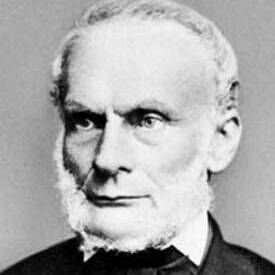
- Enrolled in the Humboldt University of Berlin
- Studied in 1840
- Occupations
- university teachermathematiciantheoretical physicistphysicist
- Biography
-
Rudolf Julius Emanuel Clausius was a German physicist and mathematician and is considered one of the central founding fathers of the science of thermodynamics. By his restatement of Sadi Carnot's principle known as the Carnot cycle, he gave the theory of heat a truer and sounder basis. His most important paper, "On the Moving Force of Heat", published in 1850, first stated the basic ideas of the second law of thermodynamics. In 1865 he introduced the concept of entropy. In 1870 he introduced the virial theorem, which applied to heat.
-
Hans Modrow
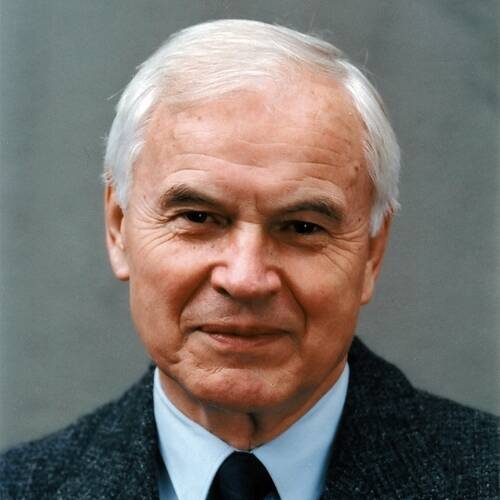
- Occupations
- politicianeconomist
- Biography
-
Hans Modrow was a German politician best known as the last communist premier of East Germany.
-
Nicolae Iorga
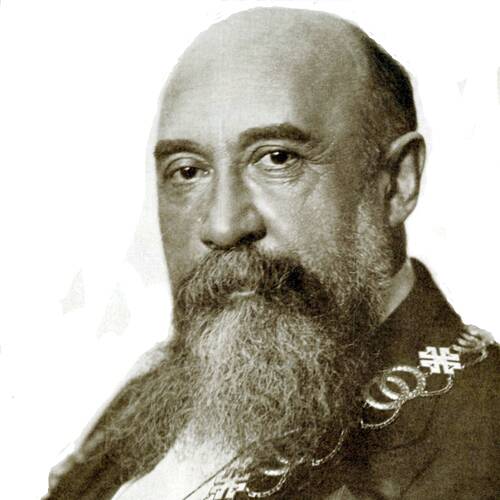
- Occupations
- politicianjournalistpoetuniversity teacherchildren's writer
- Biography
-
Nicolae Iorga was a Romanian politician who held top posts, including prime minister and president of the Senate. He was also a historian, literary critic, memoirist, albanologist, poet and playwright. Co-founder (in 1910) of the Democratic Nationalist Party (PND), he served as a member of Parliament, President of the Deputies' Assembly, and cabinet minister. A child prodigy, polymath and polyglot, Iorga produced an unusually large body of scholarly works, establishing his international reputation as a medievalist, Byzantinist, Latinist, Slavist, art historian and philosopher of history. Holding teaching positions at the University of Bucharest, the University of Paris and several other academic institutions, Iorga was founder of the International Congress of Byzantine Studies and the Institute of South-East European Studies (ISSEE). His activity also included the transformation of Vălenii de Munte town into a cultural and academic center.
-
Alfred von Schlieffen
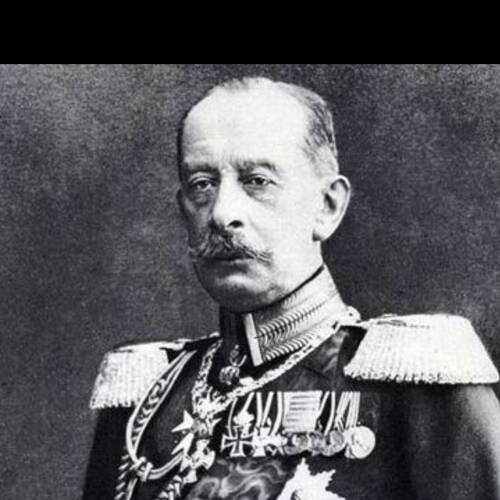
- Occupations
- politicianmilitary officer
- Biography
-
Alfred Graf von Schlieffen was a German field marshal and strategist who served as chief of the Imperial German General Staff from 1891 to 1906. His name lived on in the 1905–06 "Schlieffen Plan", then Aufmarsch I, a deployment plan and operational guide for a decisive initial offensive operation/campaign in a two-front war against the French Third Republic.
-
Carl Gustav Jacob Jacobi
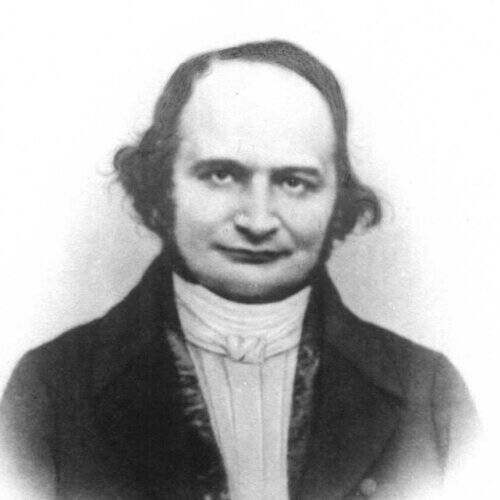
- Occupations
- physicistuniversity teachermathematician
- Biography
-
Carl Gustav Jacob Jacobi was a German mathematician who made fundamental contributions to elliptic functions, dynamics, differential equations, determinants and number theory.
-
Franz Brentano
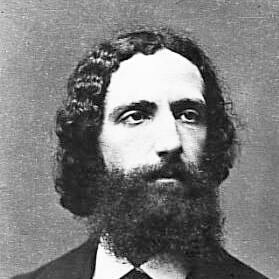
- Occupations
- psychologistuniversity teacherphilosopher
- Biography
-
Franz Clemens Honoratus Hermann Josef Brentano was a German philosopher and psychologist. His 1874 Psychology from an Empirical Standpoint, considered his magnum opus, is credited with having reintroduced the medieval scholastic concept of intentionality into contemporary philosophy.
-
Walter Hallstein
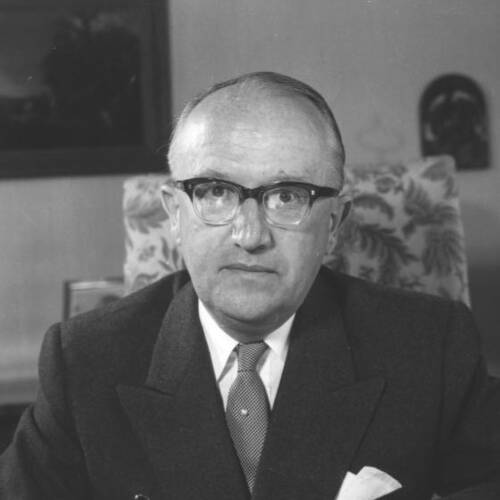
- Occupations
- university teacherpoliticianjuristdiplomat
- Biography
-
Walter Hallstein was a German academic, diplomat and statesman who was the first president of the Commission of the European Economic Community and one of the founding fathers of the European Union.
-
Azmi Bishara
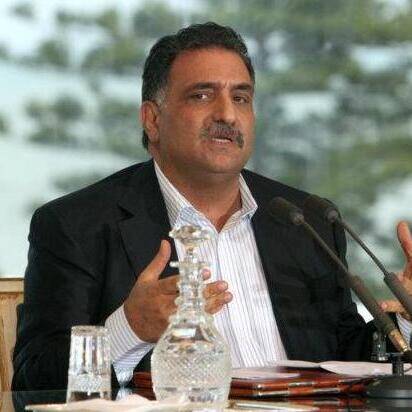
- Occupations
- novelistuniversity teacherpoliticianwriterphilosopher
- Biography
-
Azmi Bishara is an Arab-Israeli public intellectual, political philosopher and author. He is presently the General Director of the Arab Center for Research and Policy Studies and the Chair of the Board of Trustees of the Doha Institute for Graduate Studies.
-
Sven Hedin
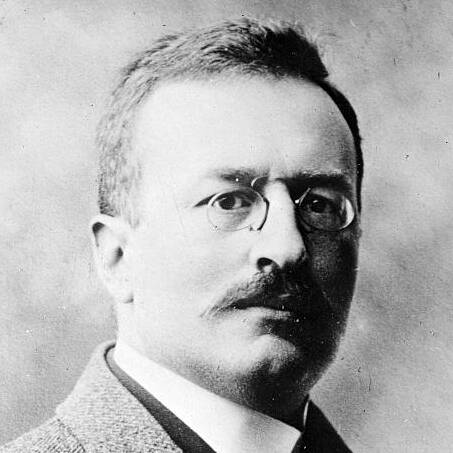
- Occupations
- writerpoliticiangeographerexplorerphotographer
- Biography
-
Sven Anders Hedin, KNO1kl RVO, was a Swedish geographer, topographer, explorer, photographer, travel writer and illustrator of his own works. During four expeditions to Central Asia, he made the Transhimalaya known in the West and located sources of the Brahmaputra, Indus and Sutlej Rivers. He also mapped lake Lop Nur, and the remains of cities, grave sites and the Great Wall of China in the deserts of the Tarim Basin. In his book Från pol till pol (From Pole to Pole), Hedin describes a journey through Asia and Europe between the late 1880s and the early 1900s. While traveling, Hedin visited Turkey, the Caucasus, Tehran, Iraq, lands of the Kyrgyz people and the Russian Far East, India, China and Japan. The posthumous publication of his Central Asia Atlas marked the conclusion of his life's work.
-
Albert A. Michelson
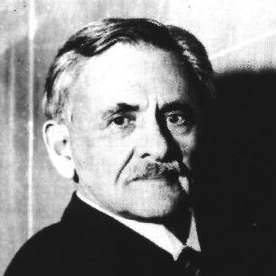
- Occupations
- physicistuniversity teachermilitary officer
- Biography
-
Albert Abraham Michelson was an American physicist known for his work on measuring the speed of light and especially for the Michelson–Morley experiment. In 1907, he received the Nobel Prize in Physics, becoming the first American to win the Nobel Prize in a science. He was the founder and the first head of the physics departments of Case School of Applied Science (now Case Western Reserve University) and the University of Chicago.
-
Zakir Husain
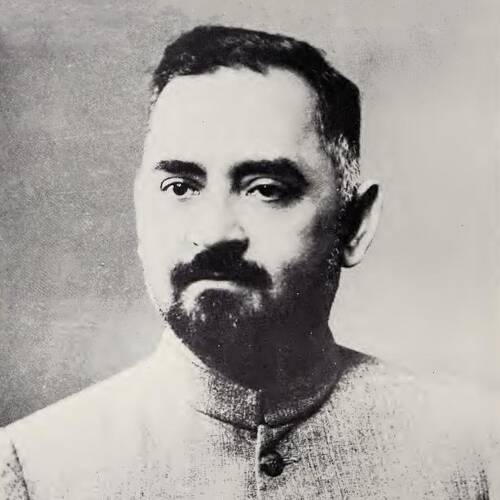
- Occupations
- politician
- Biography
-
Zakir Husain Khan was an Indian educationist and politician who served as the vice president of India from 1962 to 1967 and president of India from 13 May 1967 until his death on 3 May 1969.
-
Bernhard Grzimek
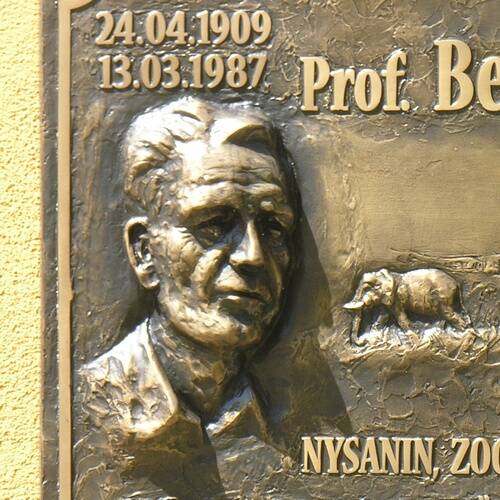
- Occupations
- photographerfilm directortelevision presenterwriterzoologist
- Biography
-
Bernhard Klemens Maria Grzimek was a German zoo director, zoologist, book author, editor, and animal conservationist in postwar West Germany.
-
Tamara Bunke
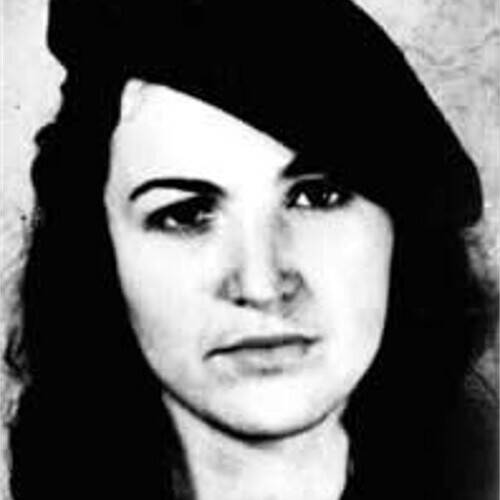
- Occupations
- journalistspyrevolutionarytranslatorpartisan
- Biography
-
Haydée Tamara Bunke Bider was an Argentine-born East German revolutionary known for her involvement in feminism, leftist politics, and liberation movements.
-
Alfred Döblin
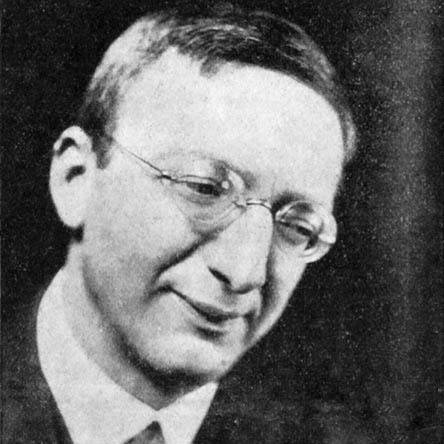
- Occupations
- poettheatre criticscreenwriterscience fiction writerjournalist
- Biography
-
Bruno Alfred Döblin was a German novelist, essayist, and doctor, best known for his novel Berlin Alexanderplatz (1929). A prolific writer whose œuvre spans more than half a century and a wide variety of literary movements and styles, Döblin is one of the most important figures of German literary modernism. His complete works comprise over a dozen novels ranging in genre from historical novels to science fiction to novels about the modern metropolis; several dramas, radio plays, and screenplays; a true crime story; a travel account; two book-length philosophical treatises; scores of essays on politics, religion, art, and society; and numerous letters—his complete works, republished by Deutscher Taschenbuch Verlag and Fischer Verlag, span more than thirty volumes. His first published novel, Die drei Sprünge des Wang-lung (The Three Leaps of Wang Lun), appeared in 1915 and his final novel, Hamlet oder Die lange Nacht nimmt ein Ende (Tales of a Long Night) was published in 1956, one year before his death.
-
Helmuth James Graf von Moltke
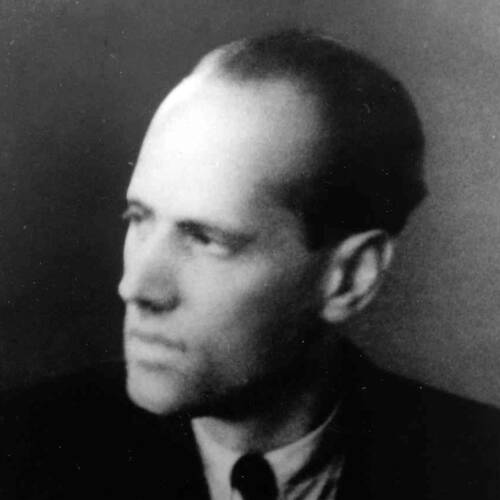
- Occupations
- resistance fighterjuristlawyer
- Biography
-
Helmuth James Graf von Moltke was a German jurist who, as a draftee in the German Abwehr, acted to subvert German human-rights abuses of people in territories occupied by Germany during World War II. He was a founding member of the Kreisau Circle opposition group, whose members opposed the government of Adolf Hitler in Nazi Germany, and discussed prospects for a Germany based on moral and democratic principles after Hitler. The Nazis executed him for treason for his participation in these discussions.
-
Carl Ritter
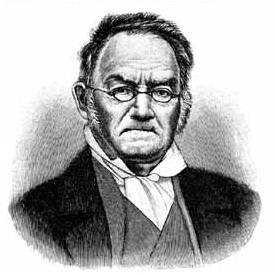
- Occupations
- university teachergeographerexplorerbotanist
- Biography
-
Carl Ritter was a German geographer. Along with Alexander von Humboldt, he is considered one of the founders of modern geography, as they established it as an independent scientific discipline. From 1825 until his death, he occupied the first chair in geography at the University of Berlin.
-
Richard Dedekind
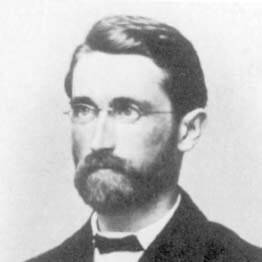
- Enrolled in the Humboldt University of Berlin
- Studied in 1852-1854
- Occupations
- philosopheruniversity teachermathematician
- Biography
-
Julius Wilhelm Richard Dedekind was a German mathematician who made important contributions to number theory, abstract algebra (particularly ring theory), and the axiomatic foundations of arithmetic. His best known contribution is the definition of real numbers through the notion of Dedekind cut. He is also considered a pioneer in the development of modern set theory and of the philosophy of mathematics known as logicism.
-
Stefan George
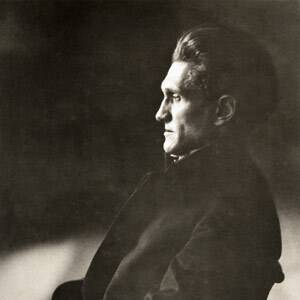
- Enrolled in the Humboldt University of Berlin
- Studied in 1889
- Occupations
- writertranslatorpoetlinguist
- Biography
-
Stefan Anton George was a German symbolist poet and a translator of Dante Alighieri, William Shakespeare, Hesiod, and Charles Baudelaire. He is also known for his role as leader of the highly influential literary circle called the George-Kreis and for founding the literary magazine Blätter für die Kunst ('Journal for the Arts').
-
Jacobus Henricus van 't Hoff
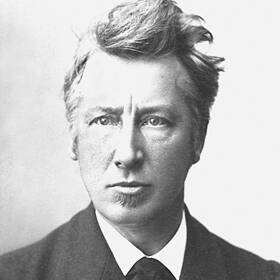
- Occupations
- stereochemistchemistphysicistprofessoruniversity teacher
- Biography
-
Jacobus Henricus van 't Hoff Jr. was a Dutch physical chemist. A highly influential theoretical chemist of his time, van 't Hoff was the first winner of the Nobel Prize in Chemistry. His pioneering work helped found the modern theory of chemical affinity, chemical equilibrium, chemical kinetics, and chemical thermodynamics. In his 1874 pamphlet, Van 't Hoff formulated the theory of the tetrahedral carbon atom and laid the foundations of stereochemistry. In 1875, he predicted the correct structures of allenes and cumulenes as well as their axial chirality. He is also widely considered one of the founders of physical chemistry as the discipline is known today.




















